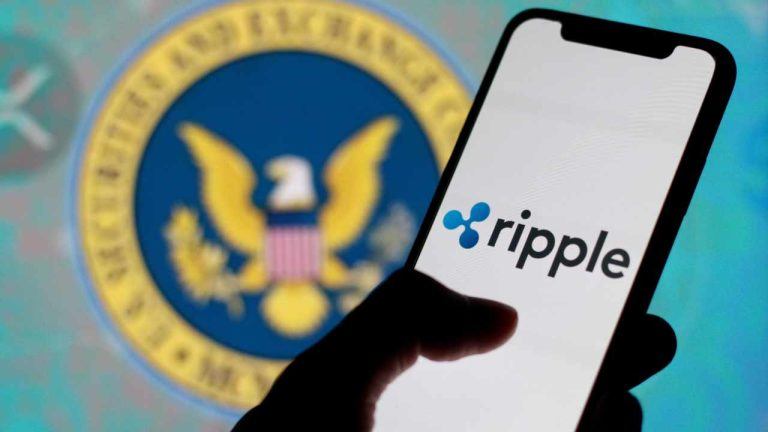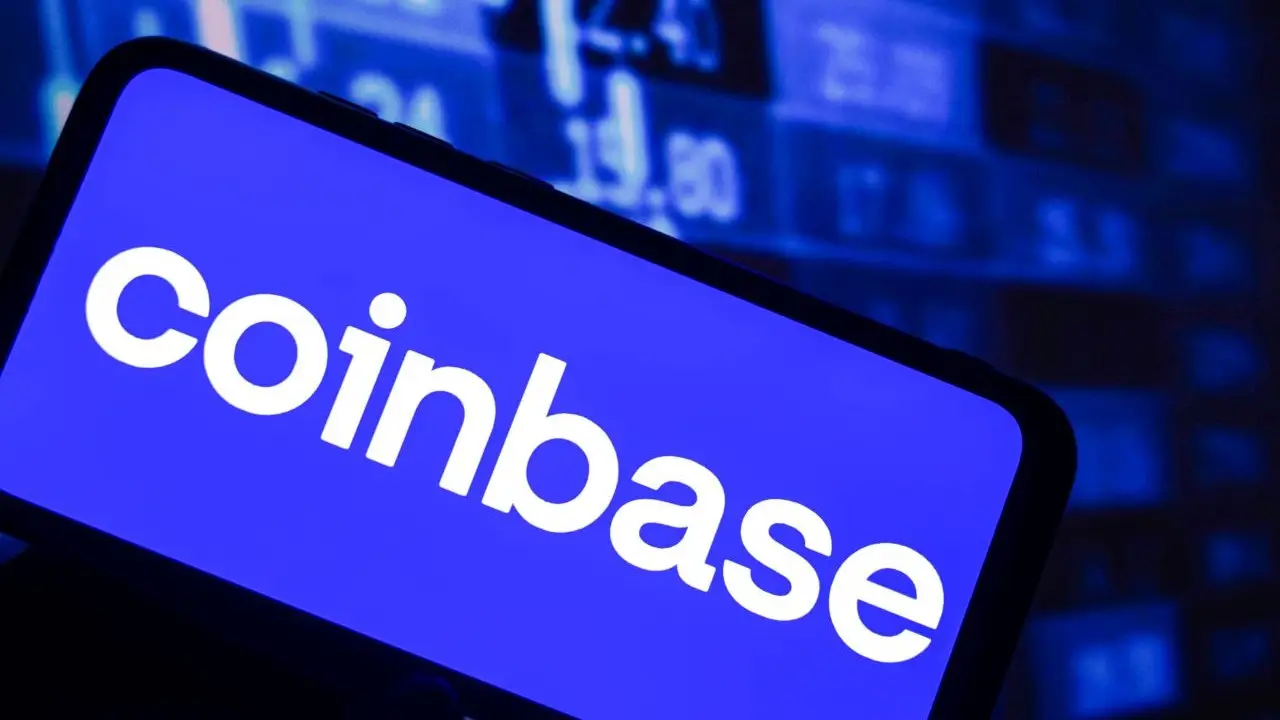 A U.S. Securities and Exchange Commission (SEC) commissioner has called the agency’s approach to cryptocurrency regulation a “disaster,” highlighting the SEC’s reliance on enforcement without clear guidance. He criticized the lack of regulatory clarity, which has led to conflicting court rulings, and emphasized the need for clearer distinctions on what falls under securities law. SEC’s […]
A U.S. Securities and Exchange Commission (SEC) commissioner has called the agency’s approach to cryptocurrency regulation a “disaster,” highlighting the SEC’s reliance on enforcement without clear guidance. He criticized the lack of regulatory clarity, which has led to conflicting court rulings, and emphasized the need for clearer distinctions on what falls under securities law. SEC’s […] District Judge Analisa Torres has cut the penalty requested by the U.S. Securities and Exchange Commission (SEC) in the case against Ripple Labs over XRP by 94%. The court partially granted the SEC’s motion for remedies against Ripple, imposing a $125 million civil penalty. “This is a victory for Ripple, the industry, and the rule […]
District Judge Analisa Torres has cut the penalty requested by the U.S. Securities and Exchange Commission (SEC) in the case against Ripple Labs over XRP by 94%. The court partially granted the SEC’s motion for remedies against Ripple, imposing a $125 million civil penalty. “This is a victory for Ripple, the industry, and the rule […]

Celebrities who have brazenly shilled their memecoins on X in recent months run a high risk of attracting the attention of the SEC and class-action lawsuits.
Celebrities who have recently created and promoted memecoins on Solana could be breaking securities laws and “will absolutely catch the attention” of the United States securities regulator, according to lawyers.
US-based public figures, including Caitlyn Jenner, Iggy Azalea (real name Amethyst Kelly), Jason Derulo (real name Jason Desrouleaux) and many others, have launched and promoted crypto tokens using their likeness since late May.
“Nothing gets the SEC to act faster than shilling a memecoin,” Creo Legal founding director David Chung told Cointelegraph.

Dapper Labs has entered a $4 million agreement to settle an investor lawsuit that claimed it sold NBA Top Shot Moments NFTs as unregistered securities.
Dapper Labs’ $4 million settlement agreement to end a class-action lawsuit against the firm reaffirms NBA Top Shot nonfungible tokens (NFTs) are not securities, according to CEO Roham Gharegozlou.
The June 3 New York District Court filing shows Dapper Labs reached a settlement agreement with a class group of investors who had sued the firm in 2021, alleging it sold unregistered securities through its NBA Top Shot Moments NFTs.
In a June 4 X post, Gharegozlou claimed the case’s legal discovery found the NFTs were on “a decentralized public network,” which meant they “are not securities in the same way trading cards are not securities.”
 In a recent legal filing, the U.S. Securities and Exchange Commission (SEC) pushed back against Coinbase’s demands for a completely revamped regulatory framework for cryptocurrencies. The agency argued that existing rules are adequate and that it’s not required to create new regulations from scratch as Coinbase suggests. SEC Clings to Century-Old Rules in Response to […]
In a recent legal filing, the U.S. Securities and Exchange Commission (SEC) pushed back against Coinbase’s demands for a completely revamped regulatory framework for cryptocurrencies. The agency argued that existing rules are adequate and that it’s not required to create new regulations from scratch as Coinbase suggests. SEC Clings to Century-Old Rules in Response to […]

Even after Binance announced its departure from Canada in May 2023, local authorities have continued to investigate the exchange.
Cryptocurrency exchange Binance has been slapped with a new class-action lawsuit in Canada, with plaintiffs alleging that the firm has violated local securities laws.
Ontario’s Superior Court of Justice published a certification motion on April 19 for a class-action lawsuit against Binance alleging that it sold crypto derivative products to retail investors without registration.
According to plaintiffs represented by Christopher Lochan and Jeremy Leeder, Binance sold crypto derivatives products in violation of the Ontario Securities Act (OSA) and federal law.

Elon Musk claims the SEC and DOJ are abusing their regulatory powers for personal and political gain to receive punitive action.
Elon Musk has called for a “comprehensive overhaul” of the United States Securities and Exchange Commission hours after the regulator sued Musk alleging he failed to testify in its probe relating to his $44 billion Twitter (now X) purchase last October.
The SEC is investigating if Musk’s purchase triggered securities laws and an Oct. 5 filing by the regulator in a California District Court seeks to compel Musk to comply with an earlier SEC subpoena.
In an X post the same day Musk suggested the SEC — along with the U.S. Department of Justice — should instead be the ones probed.
“A comprehensive overhaul of these agencies is sorely needed, along with a commission to take punitive action against those individuals who have abused their regulatory power for personal and political gain.”
“Can’t wait for this to happen,” Musk added, in response to a post outlining the various actions the U.S. government has taken against Elon Musk-led companies.
A comprehensive overhaul of these agencies is sorely needed, along with a commission to take punitive action against those individuals who have abused their regulatory power for personal and political gain.
— Elon Musk (@elonmusk) October 5, 2023
Can’t wait for this to happen.
Asked by an X user if such a probe would ever happen, Musk responded: “I estimate the probability at 100%.”
The SEC said it subpoenaed Musk in May 2023 and required him to provide testimony at the regulator’s San Francisco office on Sept. 15, which Musk initially agreed to, the filing reads.
Two days prior, Musk “abruptly” notified the SEC he wouldn’t make an appearance and made several “spurious objections,” the SEC said.
The regulator said it tried to negotiate an alternative time and place for Musk’s testimony in “good faith” but its efforts were met with Musk’s “blanket refusal.”
The SEC also claimed Musk’s objections lacked legal merit.
“None of Musk’s objections has any legal validity, and he has no justifiable excuse for his non-compliance with the SEC’s subpoena.”
X is among the most popular social media platforms for the cryptocurrency community with one heated topic of discussion being the SEC’s regulatory approach to the crypto industry.
Related: The ‘Elon effect’ shows how opinion leaders shape the fintech market
Musk has been looking to integrate cryptocurrency payments on X in recent months having obtained a currency transmitter license from Rhode Island’s regulator in late August.
Musk has taken shots at the SEC in the past, previously making his stance on the regulator clear in a December 2018 interview with 60 Minutes:
“I do not respect the SEC. I do not respect them.”
“I have no respect for the SEC''
— Tesla Owners Silicon Valley (@teslaownersSV) October 5, 2023
Elon Musk
pic.twitter.com/a46zuKXb1X
Magazine: Hall of Flame: Peter McCormack’s Twitter regrets — ‘I can feel myself being a dick’

The regulator has asked a federal judge to deny Coinbase’s motion to dismiss its lawsuit, claiming the exchange knew the cryptocurrencies it sold were securities under the Howey test.
The United States Securities and Exchange Commission has asked a federal judge to deny Coinbase’s motion to dismiss a lawsuit by the regulator.
In an Oct. 3 filing in a New York District Court, the SEC hit back at claims in Coinbase’s dismissal motion and reiterated its belief that some of the cryptocurrencies listed on its platform were investment contracts under the Howey Test subject to SEC registration.
“Each crypto asset issuer invited investors — including purchasers on Coinbase’s platform — reasonably to expect the value of their investment to increase based on the issuer’s broadly-disseminated plan to develop and maintain the asset’s value,” the SEC wrote.
The SEC asserted Coinbase has “known all along” that cryptocurrencies it sells are securities if they meet the Howey Test and alleged the exchange recognized this in its filings with the SEC.
The regulator also scrubbed Coinbase’s argument invoking the “major questions doctrine” which claimed the SEC has no authority over the crypto market until Congress says so.
“The SEC has not assumed for itself any new power to do what the federal securities laws do not already expressly authorize it to do,” the SEC said.
In an Oct. 3 X (Twitter) post, Coinbase legal chief Paul Grewal said the SEC’s arguments were “more of the same old same old” and asserted the assets it lists “are not securities and are not within the SEC’s jurisdiction.”
The @SECgov just filed its opposition to our motion to dismiss their case against @Coinbase. It’s more of the same old same old. But don’t just take my word for it – take a look for yourself. 1/7 https://t.co/QMdkRoiq0V
— paulgrewal.eth (@iampaulgrewal) October 3, 2023
Grewal claimed the SEC’s arguments in its response would mean “everything from Pokemon cards to stamps to Swiftie bracelets are also securities.”
Related: SEC initiates legal action against FTX’s auditor
Miles Jennings, a16z crypto' general counsel, claimed in an X post that the SEC’s motion “has a lot of holes.”
The SEC's opposition to @coinbase's motion has a lot of holes. Even if the court were to agree with the SEC's main contention (that investment contracts don't require legal contracts), the SEC's case should still fail.
— miles jennings (@milesjennings) October 3, 2023
As we discussed in our brief in August, the SEC's theory of… https://t.co/RTzlutSM9t
Jennings added even if the court were to agree with the regulators main argument around investment contracts then the case “should still fail” as he believes the SEC’s definition of an investment contract has “endless breadth.”
Magazine: Are DAOs overhyped and unworkable? Lessons from the front lines

The Galaxy Digital founder believes approval of a spot Bitcoin ETF would essentially be a United States regulator and government nod for Bitcoin.
The approval of a spot Bitcoin (BTC) exchange-traded fund (ETF) would equate to a “seal of approval” for Bitcoin from the United States government and its securities regulator, says Mike Novogratz.
In a July 12 interview with Bloomberg TV the founder of crypto investment firm Galaxy Digital spoke about the multiple spot Bitcoin ETF filings before the Securities and Exchange Commission (SEC), including one from the $10 trillion asset manager BlackRock.
“What I do think is BlackRock, Invesco [and] the group of ETF providers is a real signal that adoption is coming,” Novogratz said.
He added many are “nervous” about investing in crypto and the approval of a spot Bitcoin ETF would be an “easy first step” for most to start investing in the asset.
“I just think if it happens it's the seal of approval from the SEC and the U.S. government.”
Novogratz explained there is a “giant infrastructure” in place for the ETFs. Along with BlackRock, proposed ETFs from Valkyrie, Invesco, VanEck, WisdomTree, Fidelity and a joint fund by ARK Invest and 21Shares are also lined up for approval. Novogratz believes that many of these will likely end up being approved.
“The SEC is not going to approve one so you're going to have these giant sales forces out there giving access to people that didn't have access before.”
SEC chair Gary Gensler has previously claimed that “everything other than Bitcoin” falls under his agency’s purview and other crypto projects “are securities" as there are typically known developers and profits are anticipated based on their work.
Related: Don’t be naive — BlackRock’s ETF won’t be bullish for Bitcoin
Novogratz was evasive when asked his thoughts on if Galaxy and Invesco’s spot Bitcoin ETF would be able to list before the end of the year.
“This SEC has been really stubborn and really tough on crypto,” he said.
“No one of significance has gotten through the listing process. We are in that process and it has been a long and frustrating path. I'll leave it at that,” he added.
“I think we're probably going to need either a change of heart at the SEC or a change of administration to see real progress in crypto regulation here in the U.S.”
Novogratz predicted the price of Bitcoin will end the year at a high. “If you take out the top we’ll have a nice leg up,” he said.
Magazine: How smart people invest in dumb memecoins — 3-point plan for success

Gensler argued that securities laws helped prevent stock market scams once they were passed in the 1930s and can benefit the crypto market of today.
In a June 8 speech at the Piper Sandler Global Exchange & Fintech Conference, United States Securities and Exchange Commission (SEC) Chair Gary Gensler compared the current crypto market to the 1920s U.S. stock market, saying that it is full of “hucksters,” “fraudsters,” and “Ponzi schemes.” Just as Congress cleaned up the stock market by enacting securities laws, the current SEC can also clean up the crypto market by applying these laws, he argued.
JUST IN: SEC Chair Gary Gensler says crypto is all "hucksters, fraudsters, scam artists." pic.twitter.com/1xRWUMzbel
— Milk Road (@MilkRoadDaily) June 8, 2023
In the talk, Gensler praised the Securities Act of 1933 and Securities Exchange Act of 1934, claiming that these laws allowed the U.S. securities markets to “thrive” over the next 88 years. He argued that the “crypto securities markets” of today should also benefit from these laws, as they are not “less deserving of the protections” they provide.
Pointing to a court ruling against Telegram Open Network, Gensler argued that crypto asset securities are not exempt from securities laws even if they have utility.
“Some promoters of crypto asset securities contend that their token has a function beyond simply being an investment vehicle," Gensler stated. " As the courts in the Telegram case and others have said, however, some additional utility does not remove a crypto asset security from the definition of an investment contract.”
Related: SEC’s crypto actions surged 183% in 6 months after FTX collapse
This means that crypto security exchanges must comply with securities laws, including the requirement to separate “the exchange, broker-dealer, and clearing functions,” Gensler stated. In his view, this separation “helps mitigate the conflicts that can arise with the commingling of such services.”
Gensler denied that this separation isn’t possible, saying that separating these three functions simply requires work.
The SEC head argued that the current crypto market is rife with scams that have arisen because of the industry’s lack of compliance with securities laws, stating:
“With wide-ranging noncompliance, frankly, it’s not surprising that we’ve seen many problems in these markets. We’ve seen this story before. It’s reminiscent of what we had in the 1920s before the federal securities laws were put in place. Hucksters. Fraudsters. Scam artists. Ponzi schemes.”
The solution, in Gensler’s view, is to make sure that crypto securities issuers comply with the law. This is because these scams are “more likely to happen in markets whose issuers and intermediaries fail to comply with foundational laws.”
As chair of the SEC, Gensler has been heavily criticized within the crypto industry, especially since the SEC filed lawsuits against crypto exchanges Binance and Coinbase. Critics say he has an overly expansive view of the SEC’s regulatory authority and is driving innovation out of the U.S.